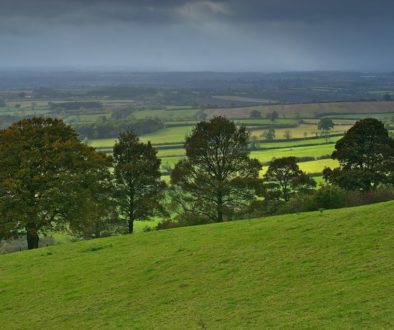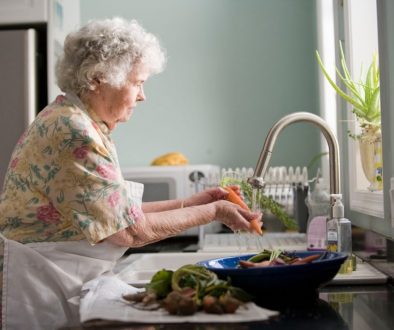Changing face of the countryside
What next for rural people and places: made to measure policies or policies imposed from afar? Jessica Sellick investigates.
Last year, the government set out a number of policy commitments which will have a direct impact on the countryside. With aspirations to turn old thinking on its head and develop new approaches, the ‘Programme for Government’ cited the devolution of power and greater financial autonomy to local government and community groups; radical reform of the planning system; a ‘home on the farm’ scheme; and measures to help with fuel costs in remote rural areas.
Amid the initial fanfare the Government also announced the closure or merger of 190+ taxpayer funded bodies – with the Commission for Rural Communities, Sustainable Development Commission and Regional Development Agencies all axed. Since then, the Localism Bill has been making its way through parliament (currently at the House of Lords Committee Stage); a Rural Communities Policy Unit (RCPU) has been set up within Defra (and is establishing its role as the ‘rural champion’ within government – watch this space for their delivery plan); a Natural Environment White Paper has been published and the process of forming a new ‘Rural and Farming Network’ has begun.
Outside of policy-making, UK Crop Protection Agency research has shown that over the last 12 months consumers are changing their weekly shopping habits by targeting more promotions and value lines amid rising food costs. Gas and electricity prices continue to soar with uSwitchnoting that 25% of people already have difficulty paying power bills. And Ofcom’s UK broadband map has revealed that rural areas tend to have lower speeds and a greater proportion of customers who receive speeds less than 2Mbit/s – according to simplydigital.com, Liskeard in Cornwall has the most expensive broadband in the country (at £16.26 per month). And 30 June saw coordinated strike action from civil service and teaching unions with marches up and down the country.
In summary, from David Cameron and Nick Clegg standing together in the rose garden at Downing Street to public sector funding cuts and marches/demonstrations, over the last 12 months we have seen unprecedented scenes. But what do these uncertainties and new policy agendas actually mean for rural communities? For example, what impact are deficit reduction measures having on rural service provision? How much of the Programme for Government has been achieved so far? How will the Localism Bill shape planning, economic development and investment in the countryside? And how is the concept of the Big Society now being translated on-the-ground?
In the coming months the RSN will be producing a series of monthly briefings to look at these questions. Each briefing will take up a key theme affecting rural communities, linked to Defra’s rural priorities. The briefings also accompany a new events programme being unveiled shortly by the RSN. The events will include presentations on issues such as: the uplands, fuel poverty, the Natural Environment White Paper, transition towns and Local Enterprise Partnerships. The first event is being held at the University of Lincoln on 13 September (10.30-3.30) and will look at public service challenges. Presentations will cover the building partnerships between councils and estates to deliver housing, employment and conservation; and a national pilot scheme being undertaken by Lincolnshire County Council to support families with complex needs. If you would like to attend this event please contact Wendy Cooper (wendy.cooper@sparse.gov.uk).
What brings the briefings and events together is a concern with looking at how the countryside is being valued and the needs and aspirations of rural communities met. In big picture terms, I would like to offer three points.
Firstly, the detail in many of the plans and programmes from the Government is emerging so we don’t meaningfully know what some of the changes might entail. For example, under proposals contained in the Localism Bill, the Government wants communities to develop Neighbourhood Plans. Yet the criteria/content of these Plans, how they might be comprehensive and cover a whole area or be site specific will work and who will pay (e.g. for building the evidence base, providing input and expertise etc) remains unclear. In this context, the Government has launched a ‘Neighbourhood Planning Vanguards Scheme’ where a dozen or so local authority areas are working with a local community to develop a ‘vanguard’ or ‘pilot’ Neighbourhood Plan. The findings of the pilot may provide valuable insights into how provisions for neighbourhood planning are likely to work.
Under Right to Buy proposals (now called ‘assets of community value’); priority will be given to local communities to buy assets of local importance when a sale is contemplated. But ‘asset’ remains undefined and the proposals will restrict an owner’s freedom to dispose of an asset on the open market. In February and March this year Rose Regeneration delivered a series of interactive workshops on the Localism Bill for Rural Action Yorkshire and Involve Yorkshire & Humber. At one event, a local publican wanting to sell his business (the only facility in the village) queried what would happen if his pub was placed on a list of community assets – how long would he have to wait for the community to raise funds to bid for the pub: 3-6 months with the takeover finalised over an 18 month period? These time periods are currently being looked at and amended by the House of Lords.
Secondly, in the move towards a ‘little state’, what is often overlooked is the sheer number of rural residents already actively involved in their local communities before the Big Society concept was ever invented. Yet what is changing under this new guise is the scale and nature of what is expected of rural dwellers – from the days of helping out others on an informal and ad-hoc basis to taking on the tenure of actually running services. A Landmark Survey by Rose Regeneration and Ruralcity Media (with support from the RSN) has revealed people have major concerns about the benefits promised by the government’s Big Society. The Survey canvassed the views of more than 1300 rural residents and stakeholders across England.
Although rural communities value volunteering, many respondents lacked the enthusiasm to deliver actual services, telling us how: “some of these services (e.g. transport support, help for elderly) are or could be provided to an extent by the community as an addition to services provided by statutory bodies, but not to a level that would be an effective replacement for current levels of ‘formal’ service provision. As provision would/does depend on local willingness to get involved, there would be/are big variations in what would be/is provided in different communities” (page 34). Many rural residents are only just seeing the impact of public sector funding cuts on-the-ground and contemplating what they mean for them (e.g. job losses, the withdrawal of evening and weekend bus services, the suspension local authority outreach facilities and so on).
Thirdly – and in line with the Government’s emphasis on ‘Big Society’ – the Rural Coalition (of which the RSN is a member) has called for ‘smarter’ approaches which are specifically tailored to rural circumstances and needs rather than continuing to use traditional, urban based models for decision making and delivery. The OECD Rural Policy Review of England (2011) described: “Defra’s focus is on rural communities and on the wider rural agenda, other departments, such as the Department for Communities and Local Government (CLG) and the Department for Business, Innovation and Skills (BIS), also play major roles in rural policy, but lack a rural focus” (page 22). How will RCPU and the dwindling number of rural organisations ensure that rural people and places are not overlooked in public policy?
Future briefings will take up these questions and look at what kind of countryside we want. The first monthly briefing in the series will be circulated in August and focus upon the future of public services.
Jessica is a rural practitioner at Rose Regeneration. She can be contacted by email jessica.sellick@roseregeneration.co.uk or telephone 01522 521211.


